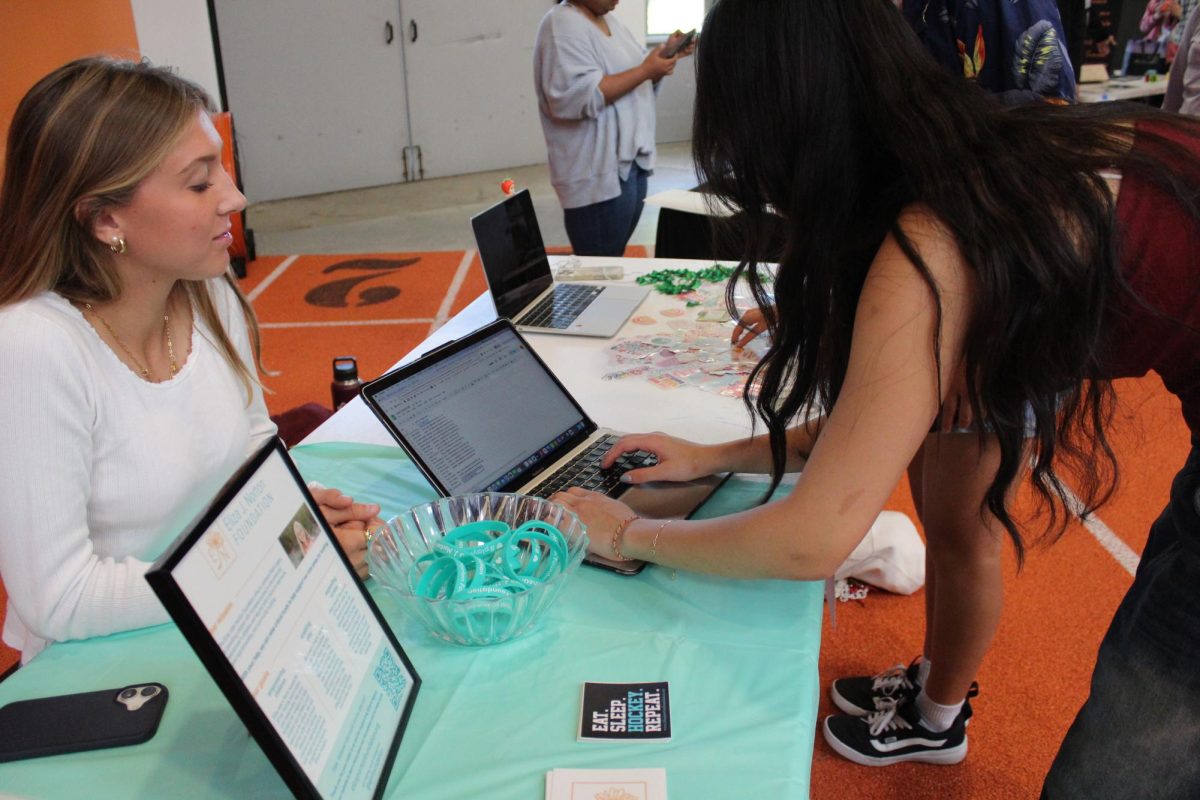Wayland High’s chapter of Amnesty International will hold a letter writing event this Thursday, December 11th, as part of Amnesty’s Global Write-a-thon. Participants will be able to sign letters petitioning against human rights abuses in countries across the globe, including our own.
This year’s Global Write-a-thon began on December 5th and will last until the 14th, marking the 60th anniversary of the signing of the Universal Declaration of Human Rights. Adopted by the United Nations on December 10th, 1948, this declaration states that every man, woman and child on the planet has basic and undeniable rights.
“All human beings are born free and equal in dignity and rights,” begins the Declaration. It contains the rights that we associate with our own Declaration of Independence, including freedom of speech, freedom from slavery, and the right to be presumed innocent until proven guilty. It also affirms the educational, political, and religious liberties of every person on this planet. Yet in many countries, these rights are still being regularly denied.
Wayland High School’s letter writing event will focus on three cases: the persecution of a women’s rights advocate in the Democratic Republic of Congo, the imprisonment of a peaceful political protester in Libya, and the failure of the Mexican government to respond to the sexual and physical abuse by government police of a group of 26 women .
In the Democratic Republic of Congo, Justine Masika Bihamba coordinates a women’s rights association whose workers are routinely threatened by the government’s military. One year ago, in September 2007, soldiers kicked down her door and began assaulting her children and searching the house. They tied the six children up at gun point. Bihamba, who had been out, returned home in the middle of the attack and called the authorities. However, the government refused to arrest the soldiers or make inquiries into the crime. Her eldest children have now left the country out of fear.
Imprisoned in Libya is a man named Fathi el-Jahmi. Arrested in 2002 after calling for free speech and political reforms in the nation’s capital, Tripoli, he has been in jail for most of the last six years. He was briefly released in 2004, only to be jailed yet again after a media interview in which he repeated his call for reform. El-Jahmi is now in poor health with coronary artery disease, high blood pressure and diabetes, all of which put him at risk for a heart attack. Doctors believe that he is not receiving enough care in jail and that he will face serious dangers if not given the treatment he needs.
Lastly, over 45 women in Atenco, Mexico were arrested one day in 2006 without explanation. They were treated violently by the police, and at least 26 of them reported being sexually and physically abused. Prison doctors did not note the damage to their bodies by such abuse. The police operation was supposedly in response to protests in the area, and many of the women still face criminal charges. The abuse has not been addressed by the Mexican government, and none of those responsible have been held accountable. The women are still waiting, after two years, for justice.
All three of these cases are abject violations of basic human liberties. Across the nation, 190,197 letters have already been pledged by participants. On Thursday during all lunches in the Commons, students and teachers alike will be able add their own letters to this number and declare their support for universal human rights.































Apathy • Dec 10, 2008 at 8:51 AM
Intriguing. Why do you care? Well, of course all the instances that you have mentioned are terrible events, but you must realize that freedom was never free. It isn’t justice, the way the world works, but it’s hard to find of our world that is just. But writing and petitioning against a country is a daunting task, will it work? Oh, and the way I see it, the women will get their rights in Africa, the man will be let out of jail as will the women in Mexico. When they are let out is up to luck.